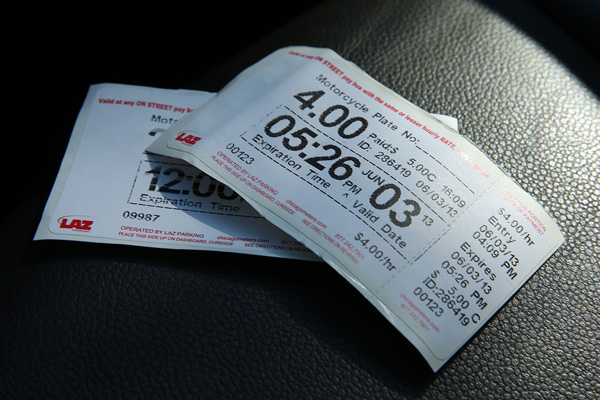
Photo: Phil Velasquez/Chicago Tribune
Via Megan Crepeau and Marcus Gilmer, a paragraph I never thought I would read in the New York Times:
Gaining much needed cash and operating efficiency are prime incentives for municipalities to undertake such transactions [i.e. the privatization of public assets]. Chicago entered into a concession for 36,000 parking meters a few years ago through a 75-year contract valued at more than $1 billion. Besides streamlining the costs of running the citywide program, the new concession exposed abuses of handicapped parking permits and led to the passage of a law preventing abuses. Today, the Chicago Metered Parking System is considered one of the world’s best.
This may come as a surprise to Chicagoans, especially then-inspector general David Hoffman and current mayor Rahm Emanuel. Perhaps we don't appreciate it enough, being unable to look beyond the trading of a consistent revenue source, one that (if the city still possessed it) could be used as an effective anti-congestion tool, to plug a hole in an unbalanced budget during a down economy. Maybe we read the wrong New York Times article (the one written by a local reporter, current Sun-Times investigative and city hall reporter Dan Milhalopolous):
Financial experts who reviewed the data say Chicago could have made out much better in the long run had it just kept the meters. The private company, Chicago Parking Meters LLC, paid the city $1.15 billion in February for the right to reap all parking fee revenues for 75 years. Under the deal, rates immediately quadrupled at most of the city’s 36,000 meters.
Perhaps ceding control of the city's streets is just a bump in the road.
Or perhaps something else is at work.
Kent Rowey is a partner in the energy and infrastructure practice at Allen & Overy in New York.
So Kent Rowey has a professional interest in the privatization of public services? Yes, quite specifically, as Cate Long catches: "What DealBook fails to disclose is that Rowey was the transaction attorney for the deals he is praising in the piece and using as examples for other cities to follow."
A team of lawyers from Katten Muchin Rosenman, Chicago's Charity & Associates, and Milwaukee's Gonzalez Saggio & Harlan served as counsel to the city on a 75-year concession for the parking meter system reached with a consortium led by Morgan Stanley Infrastructure Partners, which was advised by Freshfields Bruckhaus Deringer U.S. infrastructure practice head Kent Rowey.
Shortly after the deal Rowey was hired by Allen & Overy.
In fairness, Rowey merely states that "the Chicago Metered Parking System is considered one of the world's best," not that the widely reviled deal—which is used as an example of what not to do by cities pursuing public-private partnerships—is one of the world's best. So… points for specific wording.
And in and of itself it's a perfectly interesting and perhaps valuable article, insofar as this is what a P3 pitch looks like, taking you inside the boardroom. But as Long writes, it should probably include further disclosure for what she calls an "advertorial," a description that's hard to argue with. And, for the full boardroom-pitch effect in an era that demands multimedia storytelling, a PowerPoint presentation.



